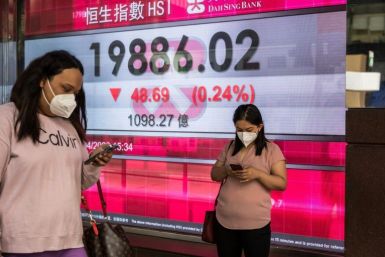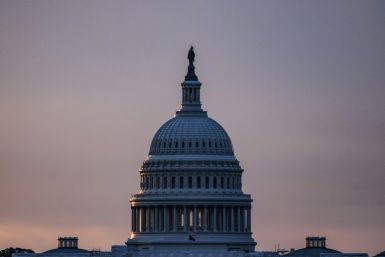The agreement may offer political wins and stock market reassurance, but it does so at the expense of thousands of businesses that had no seat at the table—and now face a steeper climb to survive.
David Saba is an entrepreneur, real estate tech innovator, and founder of MotivatedSellers.com. Observing first-hand the difficulty of real estate marketing, he developed an algorithm-driven lead generation platform to connect investors with homeowners automatically.
At a time when global financial flows are being redefined, one figure is quietly but decisively leading a transformation in how Latin American capital engages with U.S. real estate: José Luis Musi.
Single-family housing starts fell by 4.6% to a seasonally adjusted annual rate of 883,000 units, the weakest level since July 2024, while building permits for future home construction dropped 3.7% to 866,000 units — the lowest since March 2023.
Today, CoinsBee is used by more than 500,000 people worldwide, many of whom were facing the same practical problem: What good is holding value if you cannot use it?
The Federal Reserve's latest Beige Book shows modest growth but rising concerns over tariffs and immigrant labor shortages, clouding the economic outlook.
The U.S. must ensure that stablecoin issuers are transparent, accountable, and properly integrated into the broader financial system. That includes rigorous audits, robust liquidity protections, and seamless integration with banking regulation.
By holding rates steady, the Fed is effectively acknowledging that inflation pressures are real but not yet indicative of an overheating economy warranting drastic action.
The rally in Nvidia came after reports that the U.S. government approved new export licenses for the company's H100 AI chips, easing some restrictions tied to advanced chip sales to China.
The 2024-2025 crypto bull run is being led by institutional investment in Bitcoin and growing regulatory clarity. Learn how spot Bitcoin ETFs, U.S. policy shifts, and Federal Reserve decisions are shaping crypto market trends—and what it means for Altcoins and retail investors.
Global realignments are not just boardroom concerns—they're already impacting markets and consumers. Investors are seeing increased volatility in sectors sensitive to trade policy, such as energy, healthcare and tech.
The current federal funds rate sits at 5.25–5.50%, held steady by the Fed to combat inflation and avoid overheating the economy.
The Consumer Price Index showed a modest slowdown in price increases, signaling that inflationary pressures on groceries, energy and everyday goods might be easing.
Investors and analysts are closely watching whether American companies can continue to absorb these rising input costs or if profit margins will face significant erosion that could ripple through the broader economy.
Optimists argue tariffs are politically motivated bargaining tools—not lasting economic barriers. A boost in AI and tech enthusiasm further bolsters sentiment.
The surprise announcement, made via formal letters to Canadian officials late Thursday, significantly raises existing duties—many of which stood at 25%—and casts a shadow over one of the United States' closest economic partnerships.
The looming tariff threat continues to inject volatility in sectors such as manufacturing and technology but emphasized that overall market indices remain steady as investors factor in the potential for exemptions or softer measures.
Market analysts say the surge reflects concerns about supply disruptions and global reshuffling of industrial metals sourcing.
Many investors appear desensitized to President Trump's repeated tariff threats, especially with the administration's Aug. 1 deadline still shrouded in ambiguity.
The tariff strategy—announced by former President Donald Trump—is expected to impose levies ranging from 10% to 70% on goods from countries without existing bilateral trade deals.
As the world enters a new frontier of decentralized technologies, Africa stands at the threshold again. This time, it's about computing.
A sharp drop in private-sector hiring sends a warning shot about the labor market. Tariffs and big policy shifts may be catching up.
Innovator Olga Osokina on how AI has changed the relationship between consumers and brands, why emotional reactions matter, and what makes the Labubu case worth studying.
At the heart of the measure are permanent extensions to the 2017 tax cuts, a lower corporate tax rate of 17%, and fresh incentives for companies investing in U.S.-based manufacturing, artificial intelligence and advanced technology infrastructure.
Sókn Engineering has spent over 13 years modeling polymorphic environments, those complex, constantly shifting systems like financial markets that are intentionally designed to create unpredictability.
The legislation would cut taxes sharply for businesses while also offering new credits to companies that manufacture in the U.S. It would restructure income tax brackets, delivering the biggest gains to top earners.
Armistice Capital holds 8.9M shares in Travere Therapeutics as rare kidney disease stock climbs 110% following FILSPARI's full FDA approval.
Governments are unleashing the "revenge tax" against multinational corporations to recover billions lost to tax avoidance. Discover how this global crackdown reshapes business and taxpayers alike.
The U.S.–China trade deal cuts tariffs—but don't expect prices to drop overnight. Supply chains are still disrupted, and costs passed down to consumers will linger. It's a start, but real relief takes time.
The U.S.–China trade pact offers short-term relief, but it may be more of a tactical pause than a permanent fix. Here's how it affects businesses, supply chains, and rare-earth access.



















































